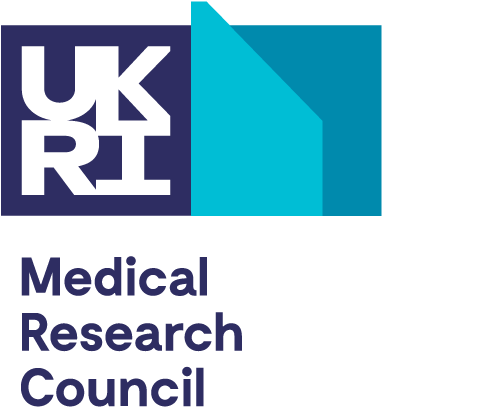The Industry Collaboration Framework (ICF) is a set of requirements supporting applicants entering collaborative research projects between academic and industry researchers. The ICF ensures that the necessary discussions have been initiated prior to any collaboration, and that the nature of the collaboration is compliant with MRC guidelines for subsidy control.
The ICF manages:
- relative responsibilities
- intellectual property rights
- financial contributions
- access to data, materials and equipment
Applications that need to consider using ICF
All applications with one or more industrial partners should review the information below to decide if they should submit their proposal under the ICF.
This includes all applications submitted to any MRC research funding schemes including:
- programme grants
- research grants
- developmental pathway funding scheme
- strategic funding opportunities
- fellowships
Failure to use the ICF when submitting a collaborative application may result in your application being rejected.
Essential requirements from applicants under the ICF include:
- completing the ‘Industry Collaboration Framework’ application question in the Funding Service
- a letter or email of support using the template from the industry partner or partners
Eligibility of industry partners
UK-based companies
UK companies of any size may participate in partnership with an eligible research organisation on MRC applications with the aim to benefit the UK research base and UK economy. UK companies include international companies that have a research and development (R&D) or manufacturing site in the UK.
Overseas-based companies
Overseas-based companies may also participate where a suitable company cannot be found in the UK, and where it can be established that their involvement is necessary for the delivery of the aims of the project.
Clear justification for the collaboration with an overseas company must be provided, outlining:
- how the project fits within the UK industry R&D landscape
- what other companies operate in this area
- why the chosen company is preferential as a collaborative partner, for example no other company has this expertise or materials, ownership of IP or building on a previously established collaboration
It is anticipated that projects supporting the MRC Global Health agenda may wish to collaborate with businesses based in the country or countries they are partnering with, and can justify the collaboration through ensuring the further development and translation of the research is done in the most appropriate setting.
Definition of company and non-company
By ‘company’ we mean an enterprise that puts or has an intention to put goods or services on a market.
By ‘non-company’ we mean any organisation that are not company as per definition in this section.
Subsidy control
A subsidy is a financial or in-kind contribution (direct or indirect) from public resources which confers a benefit to an enterprise and can be given in the public interest, to promote a social good or address economic issues.
Following the UK’s departure from the EU, the EU ‘state aid’ rules, which were developed and adopted to support the EU single market, largely no longer apply to subsidies granted in the UK. The UK is, however, still bound by its international commitments on subsidy control, including those agreed through free-trade agreements.
Whilst most research council investments are not considered to be subsidies, MRC still needs to assess collaborative research projects to ensure grant funding is compliant with UK subsidy control legislation and does not threaten to, or actually, distort competition in the UK or any other country or countries.
Further information on the UK’s commitments in relation to subsidy control can be found in the government’s guidance on the UK’s international subsidy control commitments.
Check if you need to use the ICF to submit an application
Applicants should use the decision tree to check if they need to submit using the ICF or use the following description.
A collaborative partner is defined as being actively involved in the project contributing intellectually as well as financial (including in-kind) resources. A service provider giving a discount on materials or services is considered to be a supplier.
Applications without collaborators
If the application does not have a collaborator, an application should be submitted using the standard MRC process or that which is specific to a particular funding opportunity.
Applications with non-company collaborators
Non-company collaborative partner not seeking to share or access IP arising from the project
If the application has a collaborator but it is not a company and they are not seeking to share or access IP arising from the project, they should use the standard MRC process or that which is specific to a particular funding opportunity.
Non-company collaborative partner seeking to share or access IP arising from the project
If a non-company collaborative partner is seeking to share or access IP arising from the project, collaborative projects with partners from the third sector and international universities may wish to use the ICF application questions to support the development of the governance of their project.
This includes arrangements for relative responsibilities, intellectual property rights, financial contributions and access to data. The application does not need to be submitted under the ICF.
Applications with company collaborators
Company partners and financial contributions
If the company partner is providing a financial contribution (either cash or in-kind through the supply of materials or resources) and they are expecting to access the outputs of the research, and as part of the collaboration the company partner will have access to results prior to publication, then the application should be submitted under the ICF.
If the company partner is not expecting to access the outputs of the research, and will not have access to results prior to normal publication, they should be considered as a supplier and the application does not need to be submitted under the ICF.
The industry partner is advised to provide a letter of support confirming this contribution. If materials are being supplied free of charge a materials transfer agreement may be required.
Where the company partner is not providing a financial contribution, nor claiming costs as part of a service to be provided to the applicant, or costs for supplying materials, but is just supportive of the research and providing a letter of support, then the application does not need to be submitted under the ICF.
Company partners claiming for costs for supplying materials and services
If the application is only claiming for costs for materials supplied by a company, the company partner should be considered as a supplier and the application does not need to be submitted under the ICF, even if the materials are supplied at a discount.
If the company partner is not providing a financial contribution but the application is claiming costs for a service to be provided to the applicant, the company partner should be considered as a subcontractor and the application does not need to be submitted under the ICF. Applicants should follow the rules in the guidance to applicants for subcontracting.
In rare cases an industry partner may wish to act as both an industry partner and subcontractor. But this can only be possible when they can act in different capacities on separate discreet parts of the project and will need to be covered by two separate contracts. Applicants should contact the office in advance if they wish to do this.
Submitting an application under the ICF
If it is established that an application needs to be submitted through the ICF, applicants need to:
- label the application ‘ICF:’ before the project title. For example, ‘ICF: Characterisation of a novel series of small molecule androgen receptor modulators in prostate cancer’
- include a signed ‘letter of support’ from each industry partner including all the information outlined in the ICF ‘company partner letter of support’ template
Under the ‘project partners’ application question include:
- the industry partner organisation name
- name and email address of a contact at the industry partner
- the industry partner’s contribution
- attach a signed ‘letter or email of support’ from each industry partner including all the information outlined in the ICF ‘company partner letter of support’ template
If the application is awarded, successful applicants will need to submit an electronic copy of a signed collaboration agreement within three months of the issue of an award letter and before the project begins.
ICF application question
The ICF application question in the UKRI Funding Service asks applicants to set out:
- details of the industry partner
- whether the proposal is basic or applied research
- project costs, including project partner financial contributions
- the objectives and collaborative aspects of the proposed research
- why, in the absence of the requested UKRI funding, the collaboration and the planned research could not be undertaken
- IP management and dissemination of project results
- conflicts of interest and management thereof
- justification for collaboration with an overseas company (where applicable)
If your application includes industry or company partners, but the proposed work will not involve an ICF collaboration, you must clearly explain why ICF does not apply.
Consulting with the research organisation’s contracts office or technology transfer office
The response to the ICF application question and the letter of support from the company partner will form the basis for the terms of the ‘collaboration agreement’ between the parties.
It is important to the assessment process that conversations have been conducted by parties in both the research organisation and the non-academic project partner who would have the authority to approve the acceptance of such terms.
ICF assessment criteria
MRC will make an initial assessment as to whether the proposed terms outlined in the response to the ICF application question and letter of support are compatible with MRC guidelines.
Following this initial stage, applications submitted under ICF will be assessed in the same way as all other proposals submitted under the same funding scheme the application is submitted to.
However, in addition to the standard opportunity-specific assessment criteria, board and panel members will be expected to evaluate whether:
- the collaboration is appropriate for the delivery of the research objectives and is a good use of public funding
- the collaboration will be managed effectively throughout the project
- the contributions from the company partner have been costed appropriately
Intellectual property (IP) arrangements
Ownership and responsibility for the exploitation of IP generated through the activities of the academic party rests with the academic party’s institute. In the case of applications from MRC employees, IP generated by the activities of these employees rests with MRC.
Collaborative proposals can be submitted under either the fully flexible or gated contributions requirements as set out below.
Applications have different industry partner contribution thresholds that are dependent on whether the proposed research is basic or applied. The IP management and distribution arrangements must reflect the requirements of the appropriate category and the nature of the proposed work as outlined below.
Definitions of ‘basic’ and ‘applied’ research
The ICF application question asks applicants to state whether their proposal is basic or applied. The definitions for basic and applied research are outlined below and are based on the Frascati Manual: Proposed Standard Practice for Surveys on Research and Experimental Development (OECD library), plus additional definitions used by MRC.
Basic research
Experimental or theoretical work undertaken primarily to acquire new knowledge of the underlying foundation of phenomena and observable facts, without any particular application or use in view. This includes where:
- the outcome of the proposed work has many potential applications to a range of needs, processes or products
- the results of the proposed work will provide significant insights into the mechanism of the targeted illness or condition, which might enable the development of alternative means of managing this illness or condition
Applied research
Original investigation undertaken in order to acquire new knowledge and directed primarily towards a specific practical aim or objective. This includes where:
- the outcome of the proposed work has a limited range of applications focusing on specific needs and market opportunities
- the results of the proposed work are mainly restricted to determining the feasibility or otherwise of the proposed product or solution.
Applied projects, although pre-competitive, would be nearer market than basic ones, with greater medium-term potential benefit to industry.
In the case of applied research projects, an important criterion in the assessment for the ICF is the extent to which the research will be exploitable.
The most appropriate method for exploitation and dissemination will vary from one industrial sector to another and for different kinds of projects. It is up to the applicants to consider which means are most appropriate to their situation.
Intellectual property categories
Applications can be submitted under two different categories based on the IP sharing arrangements with the company partner:
- fully flexible contributions
- gated contributions
In the ICF application question applicants need to outline the background IP that each partner will bring to the collaboration and the management of the foreground IP that will be generated during the course of the project.
‘Background knowledge/IP’ refers to knowledge or IP that is relevant to the project that is supplied by each of the partners at the start of the project. ‘Foreground knowledge/IP’ refers to all the knowledge or IP produced from the collaborative research project during the project’s tenure.
Intellectual property generated by the academic partner must be fully owned by the academic partner, and the university can then negotiate with the collaborative partner the terms under which the company will have access to the foreground IP.
Requirements for fully flexible contributions
The requirements are that:
- the industry partner does not seek a pre-negotiated right to any academically generated foreground project IP
- under some circumstances it may be acceptable for the partner to receive a non-exclusive licence to use any data generated by the project for internal research and development purposes, where this explicitly excludes any rights to, or capacity to, prevent exploitation of the data by the academic party
- for basic research the academic partner may agree to extend this non-exclusive licence to include the academically generated foreground IP without a minimum contribution from the industry partner. However, if the partners wish to extend the agreement for applied research there needs to be a 15% minimum contribution from the industry partner
- the company partner may have a right to negotiate for access (at a fair market price) to the academic party’s IP but terms cannot be agreed until the project is completed
Requirements for gated contributions
The requirements are that:
- the industry partner pre-negotiates the terms on which they access the academically generated foreground project IP
- the value of the industry contribution must meet a minimum level of contribution:
- 25% of total full economic cost project costs for basic research
- 50% of total project costs for applied research (total project costs are industry plus academic costs)
Industry partner contributions
In calculating the value of the industry partner contributions the following costs may be included:
- the salaries of the personnel working directly on the project
- materials consumed in the course of the project
- capital equipment purchased or constructed for the project, less the estimated value to the business at the end of the project
- sub-contract charges and consultancy fees, and cost of equivalent services used exclusively for the research activity, bought from outside sources
- project management costs, such as travel or office space, that are addition to those normally involved
- cash contribution from the industrial partner, if applicable
Further details can be found in the ‘ICF company partner letter of support’ template.
Post-award provision of collaboration agreement
Any award offer will be conditional upon MRC receiving a copy of a fully signed, legally binding collaboration agreement between the partners (which must be consistent with information outlined in the ICF application) within three months of the issue of an award letter and in advance of a project starting.
Send a signed electronic copy of the agreement by email to rfpd@mrc.ukri.org.
Changes to the collaboration agreement, including changes of partners, will require prior MRC approval. We will need to be satisfied that the original aims of the project can still be met and that the project continues to comply with MRC guidelines for IP sharing and contributions management as outlined in this guidance.
We do not provide a template for the final agreement. Applicants may want to consider using the Lambert agreement template or, if the project involves clinical research, the mICRA template agreement.
Further guidance
For general information on preparing your application please refer to the MRC guidance for applicants.
Contacts for more information
If you have a query about scientific aspects of your proposal or any other query that has not been answered by the information above, please contact the relevant MRC programme manager for the funding opportunity you are applying for.
If you are applying in response to an MRC funding opportunity, please refer to the relevant funding opportunity contact person.
For non-scientific, pre-submission, or pre-award queries
Contact the Research Funding Policy and Delivery team.
For non-scientific, post-award queries
Contact the Post-Award Amendments team.
Get help with the UKRI funding service
Email: support@funding-service.ukri.org
Telephone: 01793 547 490
Last updated: 23 August 2024


